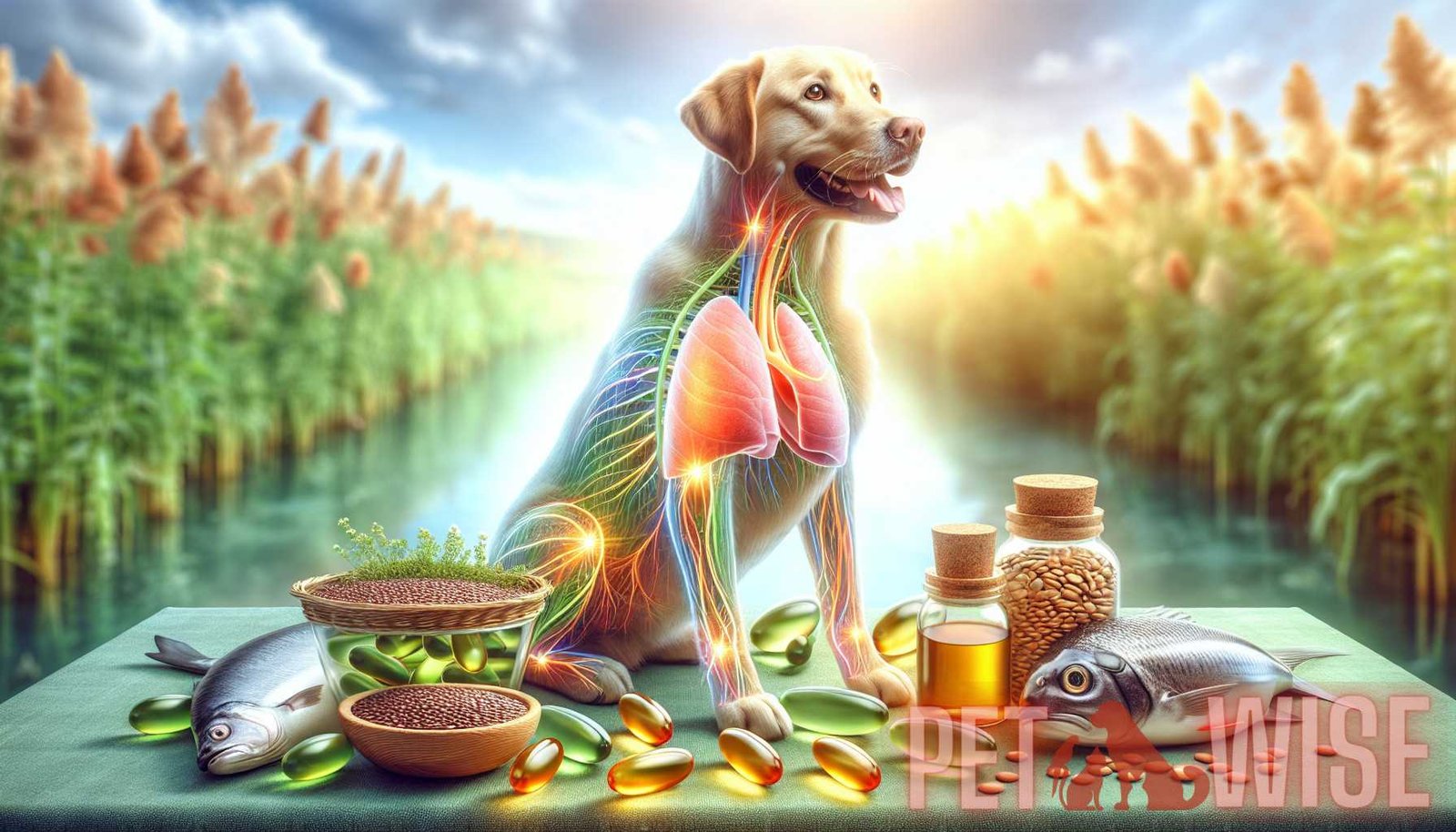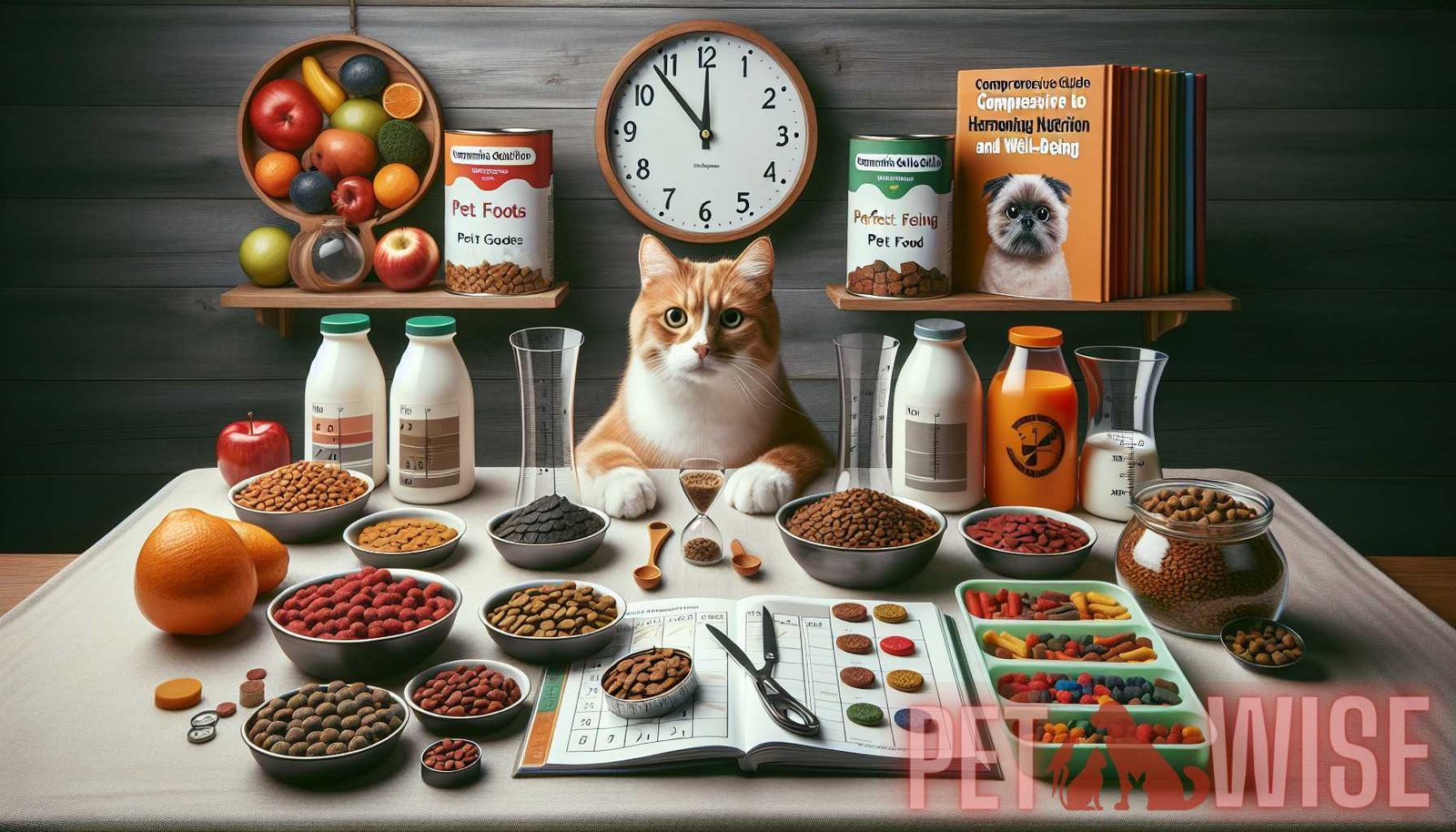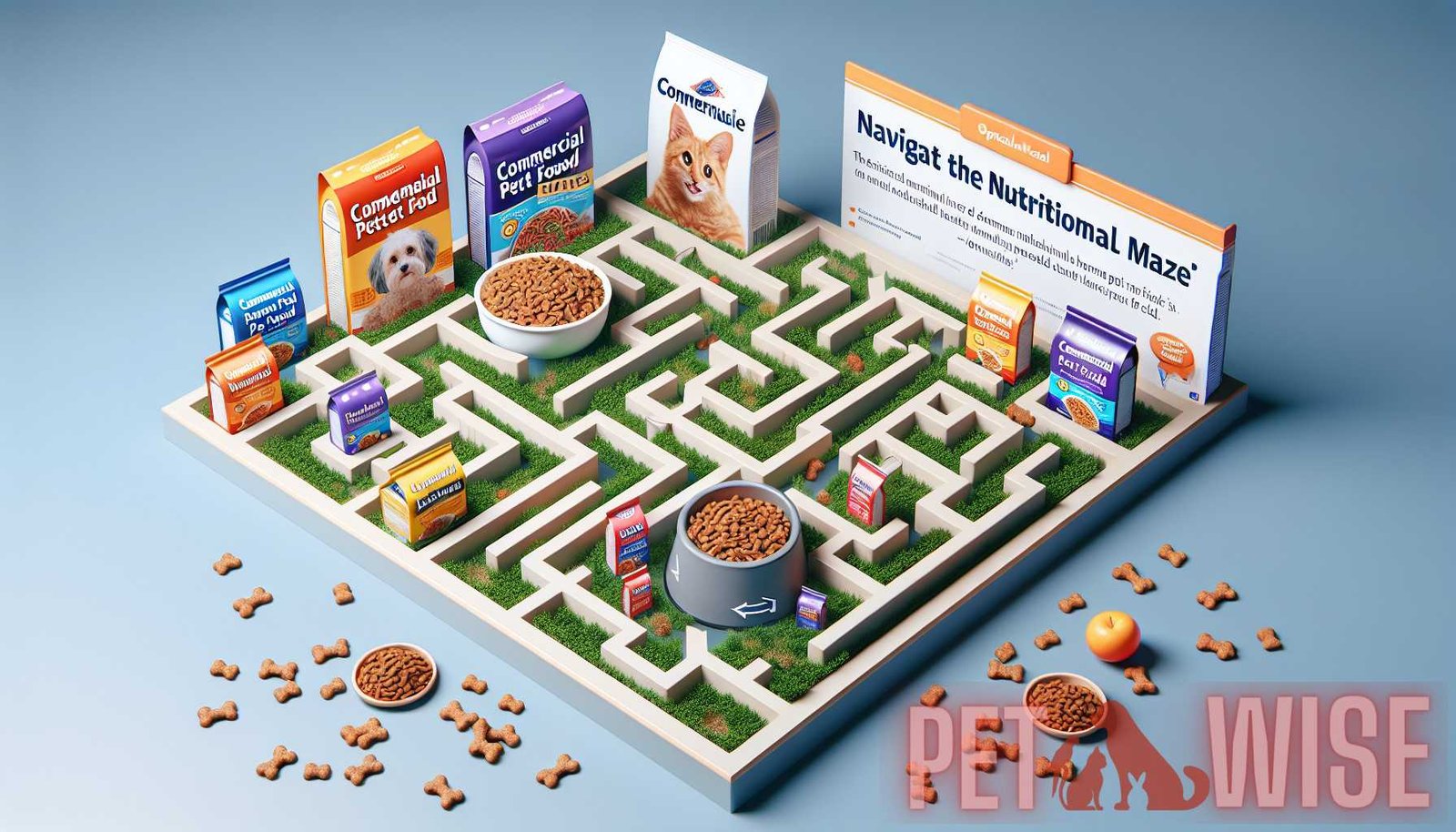Introduction
Welcome to our comprehensive guide to pet nutrition, where we delve into the intricate relationship between nutrition and pet health. Just like us humans, pets require a well-balanced diet to thrive and enjoy optimal health and well-being. In this guide, we will explore the importance of providing our furry friends with the right nutrients, discuss common nutritional needs for pets, and provide practical tips on how to create a harmonious nutritional symphony for your pet’s longevity. So, let’s dive in and unveil the nutritional secrets that can enhance your pet’s overall health and well-being!
The Role of Nutrition in Pet Health
Pet nutrition plays a vital role in maintaining good health and preventing various diseases. A well-balanced diet provides all the necessary nutrients, vitamins, and minerals that pets need to function properly. It supports their immune system, promotes healthy growth and development, and helps prevent common health issues. Let’s take a closer look at how nutrition impacts pet health.
Nutrients for Optimal Health
Pets, just like humans, require a combination of macronutrients and micronutrients to thrive. Macronutrients include proteins, carbohydrates, and fats, while micronutrients include vitamins and minerals. Each nutrient plays a crucial role in supporting your pet’s health:
- Proteins: Proteins are the building blocks of cells, tissues, and organs. They are essential for muscle growth and repair, immune function, and hormone production. High-quality proteins from animal sources are highly recommended for pets, as they provide all the essential amino acids that pets need.
- Carbohydrates: Carbohydrates provide energy to fuel your pet’s daily activities. They also provide fiber, which aids in digestion and promotes a healthy gut. Opt for complex carbohydrates such as whole grains and vegetables, as they are more nutritious than simple carbohydrates like sugars.
- Fats: Fats are a concentrated source of energy and play a vital role in nutrient absorption, insulation, and hormone production. Essential fatty acids, such as omega-3 and omega-6, are crucial for a healthy coat and skin, as well as overall well-being.
- Vitamins and minerals: Vitamins and minerals are necessary for various metabolic processes in your pet’s body. They support the immune system, aid in bone health, regulate energy production, and contribute to overall growth and development. Ensure your pet’s diet includes a variety of fruits, vegetables, and fortified pet foods to meet their vitamin and mineral requirements.
Preventing Health Issues Through Nutrition
Proper nutrition can help prevent a variety of health issues in pets. By providing a balanced diet, pet owners can reduce the risk of:
- Obesity: Obesity is a growing concern among pets and can lead to a variety of health problems such as diabetes, joint issues, and heart disease. A well-balanced diet and portion control are essential in helping pets maintain a healthy weight.
- Dental problems: Dental disease is prevalent in pets and can lead to pain, infection, and tooth loss. Feeding pets a diet that includes dental-friendly foods, such as dry kibble or dental chews, can help promote oral health and reduce the risk of dental issues.
- Allergies and sensitivities: Some pets may develop allergies or sensitivities to certain ingredients in their food. By choosing hypoallergenic or limited ingredient diets, pet owners can help minimize the risk of allergic reactions and digestive issues.
- Urinary tract issues: Certain diets formulated specifically for urinary health can help prevent common urinary tract issues in pets, such as urinary crystals or stones.
Special Dietary Considerations for Pets
Just like humans, pets may have special dietary considerations based on their age, size, breed, or any underlying health conditions:
- Puppies and kittens: Growing puppies and kittens require a diet that is specially formulated to support their rapid growth and development. These diets often have higher protein and calorie content to meet their energy needs.
- Senior pets: Older pets may have different nutritional needs due to changes in metabolism, digestion, and muscle mass. Senior pet foods are typically lower in calories and may contain joint support supplements.
- Large breed pets: Large breed dogs have unique nutritional needs to support their healthy bone and joint development. These diets are formulated to promote slow, steady growth to minimize the risk of skeletal issues.
- Pets with allergies or sensitivities: Pets with food allergies or sensitivities may benefit from a limited ingredient diet or novel protein source to avoid triggering an allergic reaction.
- Pets with medical conditions: Some pets may have underlying medical conditions that require a special diet. For example, pets with kidney disease may benefit from a low-protein diet, and pets with diabetes may require a diet with controlled carbohydrate levels.
Common Nutritional Needs for Pets
Understanding the specific nutritional needs of your pet is crucial in ensuring their health and well-being. Let’s explore the common nutritional needs for different types of pets:
Dogs
Dogs are omnivores and can thrive on a diet that includes both animal-based proteins and plant-based ingredients. Here are some key factors to consider when providing optimal nutrition for dogs:
- Protein: Dogs require protein-rich diets to support their muscle development and overall health. Look for high-quality animal proteins such as chicken, beef, or fish listed as the first ingredient on the pet food label.
- Fats: Fats provide energy and essential fatty acids for dogs. They also help maintain healthy skin and coat. Look for diets that include omega-3 and omega-6 fatty acids from sources like fish oil or flaxseed.
- Carbohydrates: Dogs can benefit from a mix of complex carbohydrates and fiber for digestion and energy. Whole grains, such as brown rice or oats, and vegetables like sweet potatoes or peas, can be included in their diet.
- Vitamins and minerals: Dogs have specific vitamin and mineral requirements to support their immune system, bone health, and overall well-being. A balanced diet that includes a variety of fruits and vegetables can help meet these needs.

Cats
Cats, on the other hand, are obligate carnivores and have specific nutritional requirements compared to dogs. Here’s what you need to know about providing optimal nutrition for cats:
- Animal-based proteins: Cats require a higher percentage of animal-based proteins in their diet compared to dogs. Diets formulated specifically for cats should have a high protein content, with sources like chicken, turkey, or fish.
- Fats: Fats provide energy and essential fatty acids for cats. They are crucial for maintaining healthy skin, a shiny coat, and supporting various metabolic processes. Diets for cats should include animal-based fats like chicken fat or fish oil.
- Minimal carbohydrates: Cats have limited carbohydrate requirements as their bodies are not built to digest and utilize carbohydrates efficiently. Look for diets with low carbohydrate content and focus on protein and fat sources for energy.
- Vitamins and minerals: Cats have specific vitamin and mineral needs, such as taurine, which is essential for heart health and vision. A balanced diet that includes appropriate amounts of these nutrients is crucial for cat health.
Small Pets
Small pets, such as rabbits, guinea pigs, or hamsters, have their unique nutritional needs. Here are some factors to consider when providing optimal nutrition for small pets:
- Fiber: Small herbivorous pets, like rabbits and guinea pigs, require a high-fiber diet to support their digestive health. Hay is a crucial component of their diet and should be available at all times.
- Vegetables and fruits: Small pets benefit from small amounts of vegetables and fruits in their diet to provide a variety of nutrients. Ensure the chosen vegetables and fruits are safe for them to consume.
- Pelleted diets: Pelleted diets formulated specifically for small pets can provide a balanced mix of nutrients. These diets often contain a blend of hay, vegetables, and fruits and can be a convenient option for small pet owners.
- Special considerations: Some small pets, like hamsters, may have specific dietary requirements. For example, Syrian hamsters should not consume citrus fruits or grapes, as they are harmful to their health.
Creating a Nutritional Symphony for Your Pet’s Longevity
Now that we understand the importance of proper nutrition for pets and the common nutritional needs for different types of pets, let’s explore some practical tips on how to create a nutritional symphony for your pet’s longevity:
Consult with a Veterinarian
When it comes to pet nutrition, every pet is unique, and their needs may vary based on age, breed, size, and any underlying health conditions. Consulting with a veterinarian is essential in determining the right diet and nutritional plan for your pet. They can provide expert advice tailored to your pet’s specific needs and help you navigate through the wide range of pet food options available in the market.
Choose High-Quality Pet Food
The quality of pet food can significantly impact your pet’s health and well-being. Look for pet foods that are made from high-quality ingredients, without artificial preservatives, flavors, or colors. Ideally, the first ingredient should be a high-quality animal protein source, and the food should be formulated to meet the specific nutritional needs of your pet.
For an in-depth guide on common nutritional needs for pets, including detailed information on proteins, carbohydrates, fats, vitamins, and minerals, check out our article on Unlocking Optimal Pet Nutrition: A Comprehensive Guide to Common Nutritional Needs for Pets.
Read the Pet Food Label
Reading the pet food label is crucial in understanding the nutritional composition of the food you are providing to your pet. Pay attention to the guaranteed analysis, ingredient list, and any specific claims or certifications mentioned on the label. This information can help you make informed decisions about which food is best for your pet.
Consider Your Pet’s Age and Specific Needs
As mentioned earlier, pets have different nutritional needs based on their age, size, breed, and any underlying health conditions. Consider these factors when selecting a diet for your pet. For example, young puppies and kittens need diets formulated for growth and development, while senior pets may benefit from diets designed for joint support or weight management.
Feed Meals Regularly with Portion Control

Establishing a regular feeding schedule with portion control is essential in maintaining a healthy weight for your pet. Avoid free-feeding, as it can lead to overeating and obesity. Follow the feeding guidelines provided by the pet food manufacturer and adjust the portion size as needed based on your pet’s activity level and body condition.
Monitor Your Pet’s Body Condition
Regularly monitor your pet’s body condition to ensure they maintain a healthy weight. Use visual and tactile cues to assess if your pet is underweight, overweight, or at an ideal body condition. If you are unsure, consult with your veterinarian for guidance on maintaining a healthy body weight for your pet.
Keep Fresh Water Available
Provide your pet with fresh, clean water at all times. Hydration is crucial for their overall health and well-being. Regularly check the water bowl and refill it as needed to ensure your pet has access to fresh water throughout the day.
Monitor for Allergies or Sensitivities
Some pets may develop allergies or sensitivities to certain ingredients in their food. Watch out for any signs of allergic reactions such as itching, gastrointestinal upset, or skin issues. If you suspect your pet has food allergies or sensitivities, consult with your veterinarian for guidance on appropriate dietary changes or allergen testing.
Regular Veterinary Check-ups
Regular veterinary check-ups are essential in monitoring your pet’s overall health. During these visits, your veterinarian can assess your pet’s body condition, provide vaccination updates, and address any specific nutritional concerns. They can also perform diagnostic tests if needed to ensure your pet’s health and well-being.
Continual Assessment and Adaptation
Pet nutrition is not a one-size-fits-all approach. It requires continual assessment and adaptation to meet your pet’s changing nutritional needs throughout their life. Monitor your pet’s overall health, energy levels, and coat condition. If you notice any changes, consult with your veterinarian to determine if dietary adjustments are necessary.
The Importance of Exercise
While nutrition is crucial, it should be paired with regular exercise for your pet’s overall health and well-being. Physical activity helps maintain a healthy weight, promotes muscle development, and stimulates mental stimulation. Provide your pet with opportunities for daily exercise through walks, playtime, or interactive toys.
The Impact of Proper Nutrition on Pet Health
Providing optimal nutrition for your pet has numerous benefits on their health and well-being. Here are some of the key impacts of proper nutrition:
- Healthy weight management: Proper nutrition helps maintain a healthy weight for your pet, reducing the risk of obesity-related health issues.
- Strong immune system: A well-balanced diet supports your pet’s immune system, helping them fight off infections and diseases.
- Shiny coat and healthy skin: Proper nutrition contributes to a shiny coat and healthy skin, reflecting your pet’s overall well-being.
- Joint and bone health: Certain nutrients, such as calcium and glucosamine, support joint and bone health, reducing the risk of mobility issues in pets.
- Improved digestion: Providing a diet rich in fiber promotes healthy digestion and reduces the risk of gastrointestinal issues.
- Mental stimulation: Well-balanced nutrition provides the energy and nutrients needed for mental stimulation, promoting overall cognitive health.
Conclusion
Proper nutrition is a crucial component of maintaining your pet’s health and well-being. By understanding the intricate interplay between nutrition and pet health, you can create a harmonious nutritional symphony for your furry friend’s longevity. Consult with a veterinarian, choose high-quality pet food, and consider your pet’s specific nutritional needs. Monitor their body condition, provide regular exercise, and make adjustments as needed. Remember, the key to optimal pet health lies in the nutritional choices you make.
For more information on pet nutrition and a detailed guide on common nutritional needs for pets, check out our articles on Pet Nutrition: Promoting Longevity and Well-being and Unlocking Optimal Pet Nutrition: A Comprehensive Guide to Common Nutritional Needs for Pets.
Image source: petwise.website



